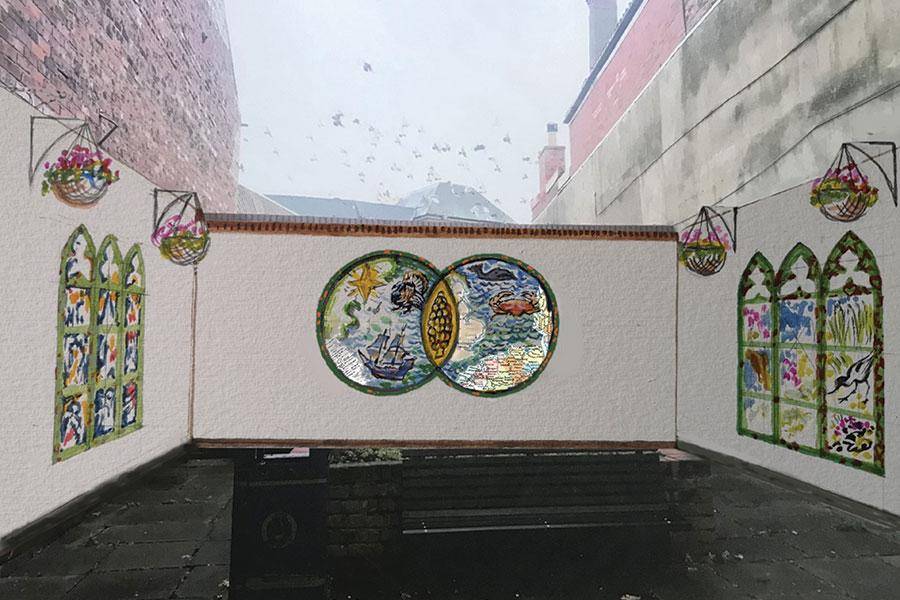With assistance from Liverpool-based Palace Chemicals, a project headed by the Boston School of Mosaic has taken on the task of breathing new life into the medieval courtyard on Dolphin Lane in Boston, Lincolnshire. Hundreds of people in the diverse community of Boston have all played a part in bringing the project to fruition.
The manufacturer of tile adhesives, grouts, building chemicals, wood treatments and decorating sundries sponsored the project through the supply of adhesive and grout. It also provided guidance and technical advice to environmental artist and project leader Karen Francesca, who has a long relationship with the company.
Francesca said: “Palace always delivers, and the advice and guidance we get from them (particularly as products are improving and advancing all the time) is really important and extremely helpful. We’re always very grateful for their support”.
Collages created by various members of the community have been used to inspire designs for an outdoor art gallery, which will be turned into mosaics. Aspects of the social and environmental history of the area have been included, as has an allegorical map – all of which require precise placement of mosaic tiles.
Francesca said: “My intention was to create a sense of belonging through active involvement in a place. Dolphin Lane courtyard was the ideal place – and these new public artworks will reflect the importance of community and its wide range of cultural groups”.
Palace supplied its Laticrete 254 Platinum tile adhesive. The product is described as a one-step polymer-fortified adhesive for interior and exterior use, which requires it to be mixed with water. According to the company, the product’s long open time with strong initial grab and workability made it particularly helpful for working out the intricate designs. Once cured, the product’s high bond strength, reportedly useable on all commonly encountered building materials, means it can withstand challenging environments.
The project also used Palace Colour-Lock Midnight Black Grout, a fast-setting, polymer-fortified, mould-resistant grout based on lime-free binder technology. The product reportedly ensures the finished colour shade is consistently achieved without being affected by efflorescence or shade variation. Available in a range of 12 colours for wall & floor tile joints up to 20mm wide, the grouting compound can be applied across all types of ceramic tiled surfaces using a rubber squeegee or grout float. The product dries to a hard, durable, shrink resistant, mould resistant and water-repellent finish, Palace says, suitable for internal and external locations and especially in sanitary areas where inhibition of fungal growth is essential.
Steve Ball, commercial director of Palace Chemicals, said: “Karen does some amazing work, and this Boston School of Mosaic project is phenomenal in the way it has involved collaboration with so many diverse groups – many of whom wouldn’t normally get a voice.
“We are delighted and proud to be able to put our products to work for such an important and inclusive piece of public art. Not only have we helped to bond the tiles, but we like to think we’ve played a small part in bonding the community”.
www.palacechemicals.co.uk









